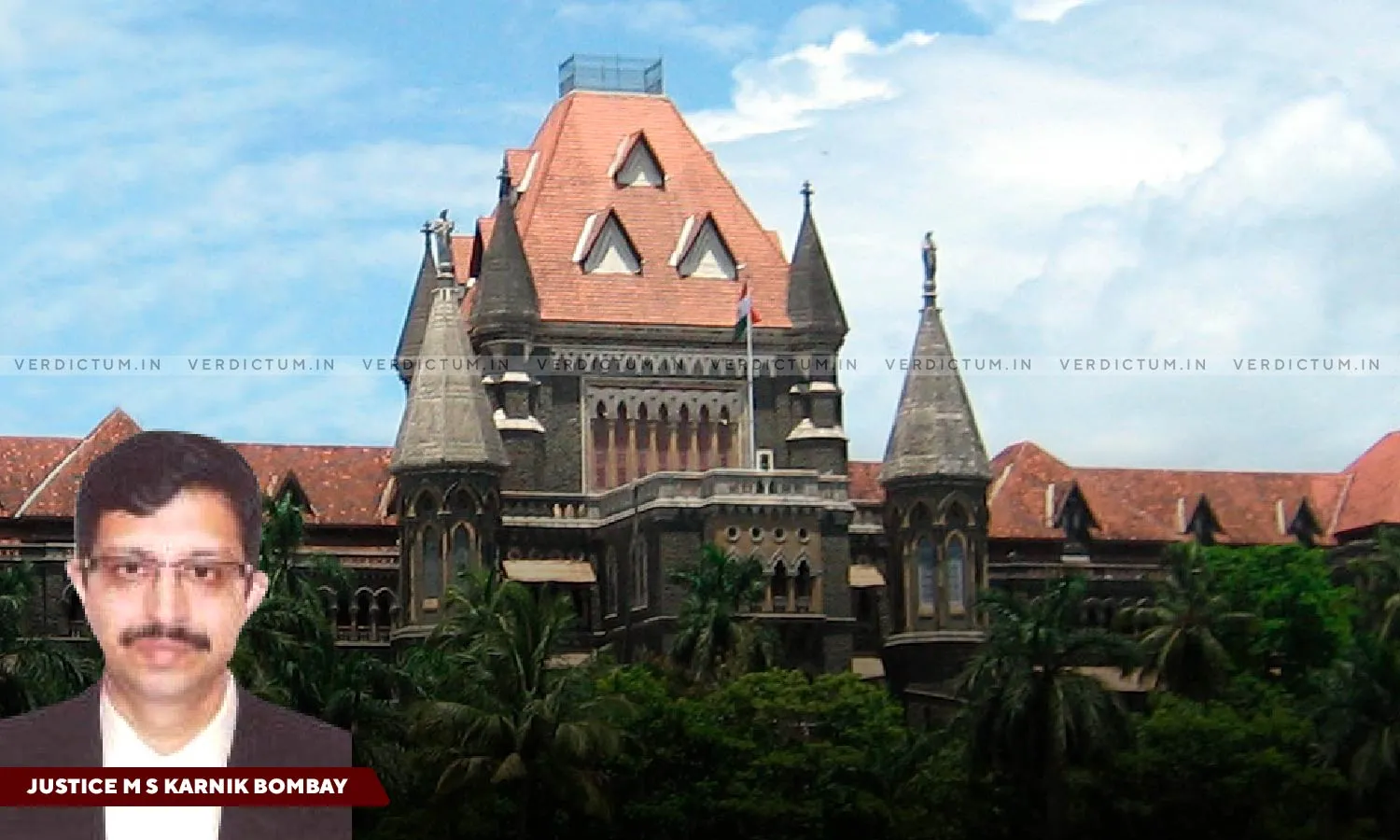Contention That Complaint Is Incomplete And Intended To Deny Right To Default Bail Is Unfounded: Bombay HC Denies Bail To Sanjay Chhabriaa In Yes Bank Money Laundering Case

The Bombay High Court dismissed the Bail Application of builder Sanjay Chhabriaa in the Yes Bank Money laundering Case while observing that the contentions that the complaint against him was incomplete and intended to deny the right to default bail were unfounded.
The Court held that the Special Court's permission to conduct further investigation must be understood in the context of the crime as a whole rather than the Applicant in particular. The Court held that the Special Court's permission to conduct further investigation must be understood in the context of the crime as a whole rather than the accused in particular. Therefore, interpreting the paragraph in the manner suggested by the Applicant would defeat the purpose of a fair and comprehensive investigation into the offense under the Prevention of Money-Laundering Act, 2002 (PMLA), the Court noted.
Justice M. S. Karnik observed, “I do not find any merit in the submission of learned counsel for the applicant that the said complaint qua the applicant is piecemeal, incomplete or made with the intention of defeating the indefeasible right to seek default bail. I am more than satisfied with the stand of the respondent that paragraph No. 15.4 of the said complaint cannot be read in isolation dehors the contents of the said complaint and the statutory provisions governing the indefeasible right to default bail under Section 167(2) of the Cr.P.C. I do not find any error committed by the Special Court in dismissing the application (Exhibit 308) preferred by the applicant for default bail”.
Advocate Vibhav Krishna appeared for the Applicant, Additional Solicitor General Devang Vyas for the First Respondent, and Additional Public Prosecutor Rutuja Ambekar appeared for the State.
The CBI arrested the Applicant, who was in CBI custody from April 29 to May 13, 2022. Subsequently, the Directorate of Enforcement (ED) arrested the Applicant and investigated him from June 7 to June 17, 2022, after which he was remanded to jail custody. On August 4, 2022, the ED filed a third supplementary prosecution complaint. The Applicant applied for regular bail before the Special Court. After that, the Supreme Court granted default bail to the Applicant.
Furthermore, the Applicant had filed for default bail before the Special Court based on the judgment passed in his favor by the Supreme Court. The Applicant filed a petition with the Special Court under the PMLA seeking default bail pursuant to Section 167(2) of the Code of Criminal Procedure, 1973 (CrPC), which was denied. Aggrieved, the Applicant approached the High Court by way of a Bail Application.
“The question is whether the applicant can be permitted to furnish the bail bonds under section 167(2) of Cr.P.C. and whether the said complaint can be said to an incomplete complaint filed only to defeat the indefeasible right accrued in favour of the applicant”, the Court noted.
The Court held that money laundering is a complex crime involving interconnected transactions and conspiracies. The main objective of money laundering is to integrate illicit funds into the lawful financial system, making it hard for authorities to trace and seize them.
Furthermore, the Court observed that money laundering is a process that involves three stages: placement, layering, and integration. In the first stage, criminals introduce illegal funds into the financial system through cash deposits, smurfing, or front businesses. The second stage involves moving the funds through various transactions, accounts, and jurisdictions to conceal their origin. This stage includes transfers, currency conversions, and other complex financial maneuvers. Finally, in the third stage, the laundered money is reintroduced into the economy, making it appear as legal funds. Criminals achieve this by investing in assets such as real estate or luxury goods or by mixing illegal funds with legal business activities.
“The complexity of a money laundering case is determined by the intricacy and sophistication of the methods used to disguise the illicit funds. In simpler cases, the money laundering process may involve a straightforward series of transactions, with minimal attempts to conceal the source of the funds. These cases often have a limited number of steps and are relatively easier to investigate and understand. On the other hand, complex money laundering cases, such as the one at hand, encompass multiple levels of transactions. These cases typically involve intricate schemes and techniques aimed at creating numerous layers of obfuscation, making it challenging for investigators to unravel the true nature of the illicit funds. Complex cases may include a wide range of methods, such as the use of offshore accounts, shell companies, international transfers, and intricate financial structures”, the Court observed.
The Court noted the Respondnet’s contentions but observed Section 44(ii) of the PMLA allows the complaint to include any subsequent complaint relating to the investigation of evidence against any accused person, whether named in the original complaint or not. The investigating agency is not restricted from performing its duties under the provisions of the PMLA.
The Court noted that the investigation regarding the properties mentioned in the complaint is complete concerning the Applicant and the translation discussed therein. However, the investigation is still ongoing in connection with other properties, transactions, persons, and entities.
Accordingly, the Court dismissed the Application and upheld the impugned order.
Cause Title: Sanjay Rajkumar Chhabriaa v Directorate Of Enforcement

